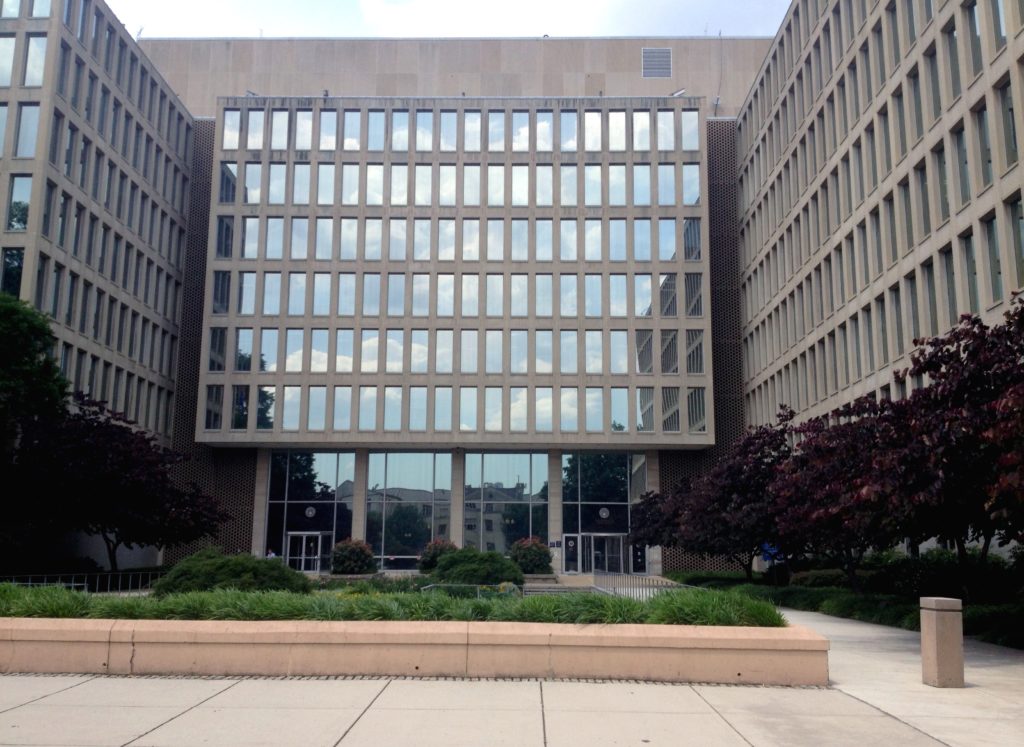
Federal News Network reports
The Office of Personnel Management is reshuffling current senior leadership and reorganizing a few of its offices as it waits for the arrival of its new director.
“OPM is making staff and organizational updates in order to better serve the agency’s mission,” the agency told Federal News Network. “These staff and organizations updates will help us to increase efficiency, better leverage our incredible internal talent and build back the agency for the future.”
Dennis Coleman, the agency’s current chief financial officer, will be the new chief management officer, OPM announced Thursday.
Margaret Pearson, OPM’s deputy chief financial officer, will be the acting CFO until the agency fills the job permanently. It will conduct a national search to find a new permanent CFO, OPM said.
From the COVID-19 vaccine front
- The Wall Street Journal informs us that “The Food and Drug Administration and vaccine maker Johnson & Johnson expect to announce as early as Friday that contamination problems at a Covid-19 vaccine plant in Baltimore are resolved, clearing the way for millions more doses to become available.”
- The New York Times tells us that “Immunity to the coronavirus lasts at least a year, possibly a lifetime, improving over time especially after vaccination, according to two new studies. The findings may help put to rest lingering fears that protection against the virus will be short-lived. Together, the studies suggest that most people who have recovered from Covid-19 and who were later immunized will not need boosters. Vaccinated people who were never infected most likely will need the shots, however, as will a minority who were infected but did not produce a robust immune response.”
- A Bloomberg op-ed write opines (accurately in the FEHBlog’s opinion) that “The news that some employers have started handing out cash rewards to workers who are vaccinated against Covid-19 warms my libertarian heart. Yes, the idea is controversial; yes, there are legal implications. But providing incentives to get people to do what others think they should is almost always superior to punishing them for defying those wishes.” To that end, CVS Health announced that “beginning June 1, eligible customers who received or plan to receive a COVID-19 vaccination through CVS Health may choose to enter the #OneStepCloser sweepstakes for an opportunity to win one of over a thousand fun and exciting prizes through weekly drawings and grand prizes over a six-week period.” (Regrettably the FEHBlog got his vaccinations at a Maryland mass vaccination flight.)
- Fierce Biotech reports that “Sanofi, GlaxoSmithKline kick-start phase 3 COVID-19 vax test as the pair targets variants, Q4 approval.”
From the prescription drug front —
- Fierce Pharma informs us that “Within hours of granting emergency use approval to a COVID-19 antibody drug by GlaxoSmithKline and Vir, the United States has restricted the use of another COVID antibody treatment, this one from Eli Lilly. The FDA has halted the distribution of Lilly’s combination of bamlanivimab and etesevimab in Arizona, California, Florida, Indiana, Oregon and Washington––all states where coronavirus variants from Brazil and South Africa account for more than 10% of those with the disease. The antibody combo had previously been paused in Illinois and Massachusetts. Providers in those states should use Regeneron’s antibody treatment of casirivimab and imdevimab, the FDA says. Lab studies have shown that option is more effective against the Brazilian (P.1) and South African (B.1.351) strains, according to the agency.’
- Fierce Healthcare reports that CMS delays for six months [until July 1, 2022] a [complex] requirement for drugmakers to offer multiple best prices for Medicaid value-based deals. Also “The Pharmaceutical Research and Manufacturers of America, a top drug lobbying group, sued CMS in federal court on May 21 over another section of the Dec. 31, 2020, final rule. The drug industry wants a federal judge to ditch a requirement for manufacturers to factor in copay assistance into the Medicaid best price.”
- Business Insider tells us that “Amazon is considering options for creating a physical retail-pharmacy presence in the US, three people familiar with the matter told Insider. It’s part of a plan to win over a larger slice of the prescription-drug industry. There is not a concrete plan to do so, and the talks are mostly exploratory, the people said. They were not authorized to speak to the press. Any meaningful rollout of stores could take more than a year, one of them said.” The FEHBlog watched a Bloomberg TV interview of Amazon’s CEO Jeff Bezos. The interview asked Mr. Bezos how he fills his workdays. He responded that he and his direct reports think about the future so this makes sense.
- Virta Health, which offers diabetic treatments, announced a free webinar on Thursday June 17 at 2 pm to discuss a new potentially blockbuster Novo Nordisk anti-obesity drug. Here’s the skinny so to speak —
Obesity rates continue to soar, but earlier this year we were met with intriguing news. Early 2021, Novo Nordisk released phase 3 data for their diabetes drug, Semaglutide, in which the outcomes which were described as “breakthrough” and “game-changing” Patients on average lost 33.7 pounds after 68 weeks, more than 1.5 higher than the next best obesity drug. Experts predict the record-breaking efficacy rates could unleash the obesity drug market, which has historically lingered at a low <1% penetration rate.
Despite what looks like a promising turn of events at the surface, there is growing concern that we’re at a tipping point for a healthcare cost crisis. With an estimated list price per patient of $13,000, semaglutide could take a huge hit on employers and payers who are already struggling to control growing medication and healthcare costs.
